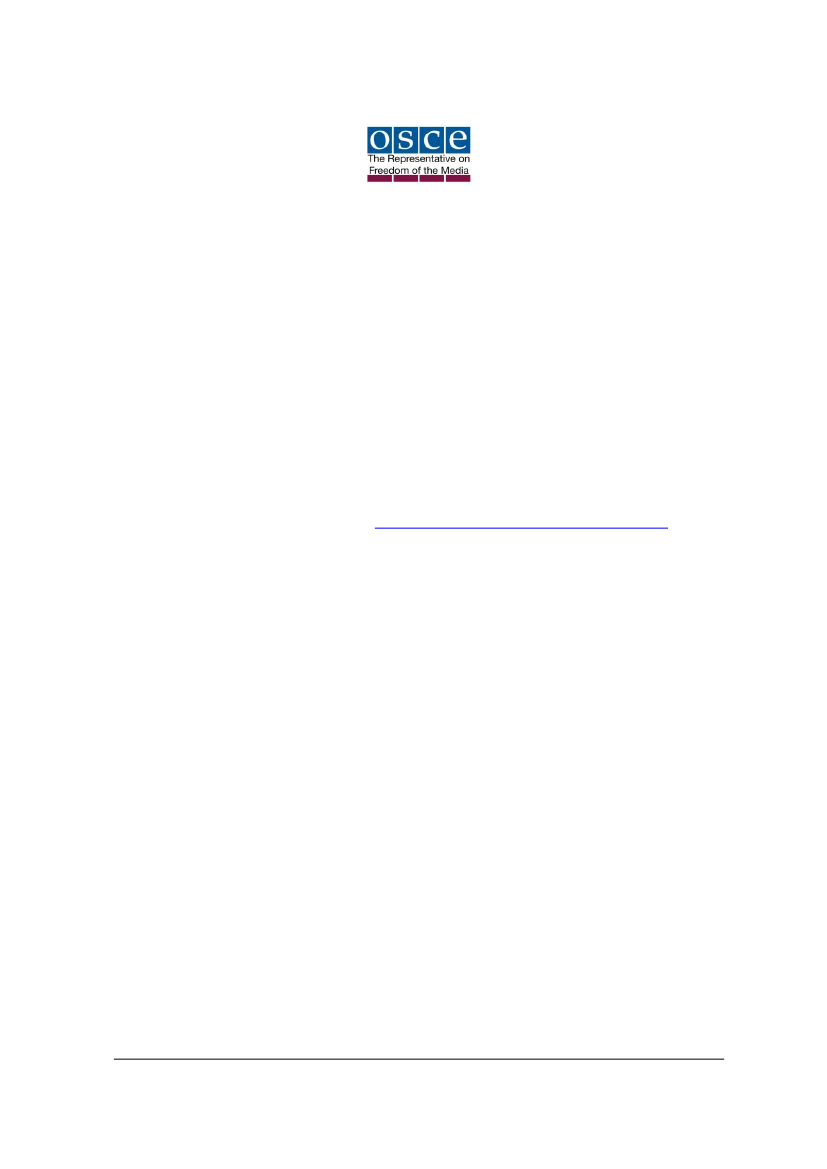
Organization for Security and Co-operation in Europe
The Representative on Freedom of the Media
Teresa Ribeiro
Vienna, 25 March 2022
Dear Members of the OSCE Parliamentary Assembly!
It is my pleasure to invite you to participate in a Questionnaire on the Safety of Female
Journalists Online: the role of Parliamentary action. The questionnaire, a joint initiative by the
OSCE Representative on Freedom of the Media and the OSCE Parliamentary Assembly, aims at
identifying and advocating better preventive and protective mechanisms for female journalists
within the OSCE region. I presented the questionnaire at the 2021 Winter Meeting; you can find
it annexed to this letter and via this link:
https://www.surveymonkey.com/r/SOFJO-PA.
Equal opportunities to freedom of expression is indispensable for media freedom and the
basis for peace, comprehensive security, and sustainable development. Without diversity or
plurality, however, there can be no democracy. Democratic participation at all levels is possible
only where everyone can both access information about policies, programmes and issues of
public interest, and discuss openly their respective strengths and weaknesses.
Female journalists and parliamentarians share the burden of regularly facing the same
patterns of attacks and threats online, resulting in the worrying trend of contradicting and limiting
pluralism, being fundamental for democracy. Gender-based online attacks regularly aim at
denying women a public voice, leading to self-censorship or worse: women retreating from the
public sphere, depriving all of society of diverse information and inclusive public debates.
Parliamentarians have a fundamental role in ensuring that freedom of expression is
enabled for all, including by holding governments to account, by addressing harassment and
inappropriate behaviour by politicians and public figures, and that ensuring adequate, timely and
effective prevention, protection and prosecution mechanisms are in place for the protection of
journalists.
In 2018, all OSCE participating States committed themselves to improve the safety of
journalists, including by adding a gender perspective to all efforts pertaining to journalists’ safety
and taking effective measures to end impunity for attacks against them.
Wallnerstrasse 6-6a
A - 1010 Vienna, Austria
Telephone
+43-1-514 36 6800
Telefax
+43-1-514 36 6802
E-mail